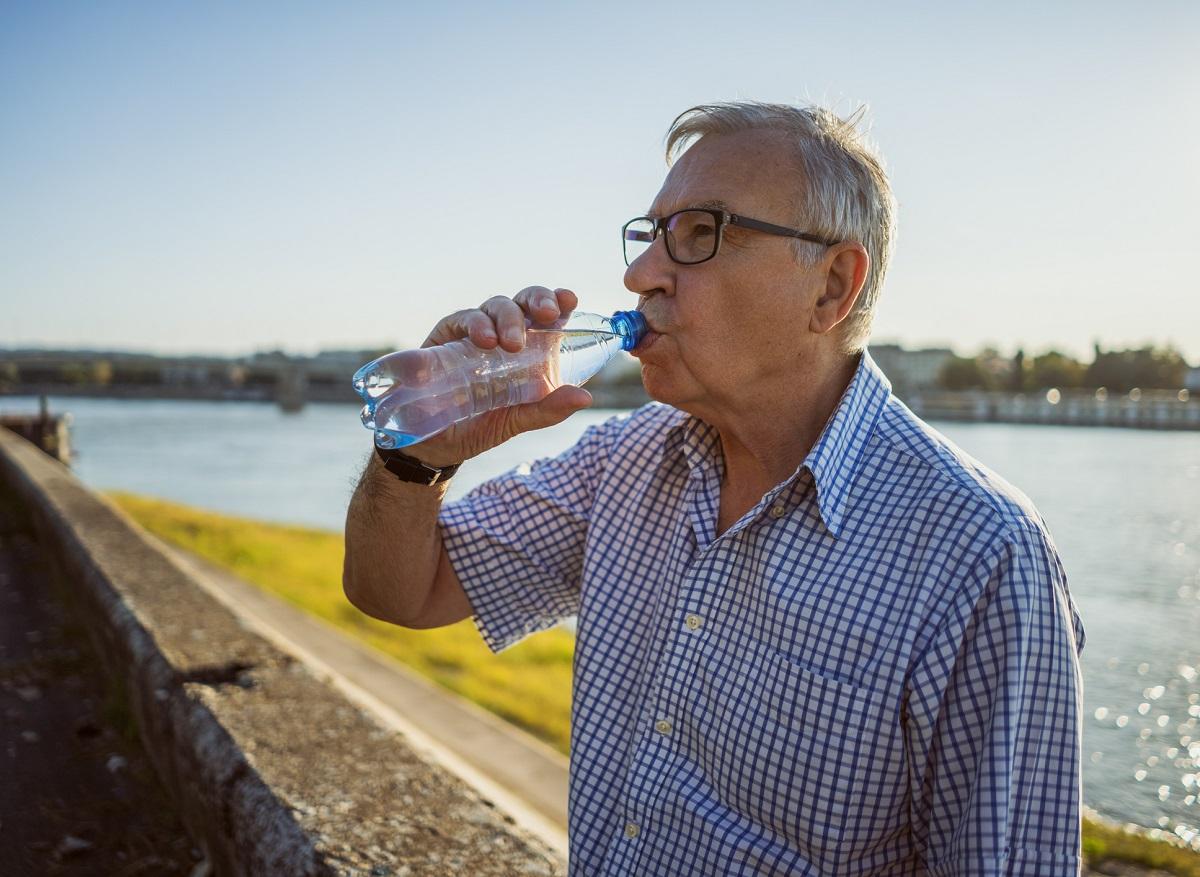October 7, 2005 – As the municipal elections in Quebec approach, the relevance of fluoridating drinking water to prevent tooth decay resurfaces. The debate arouses passions: supporters of fluoridation and its fiercest opponents appear to be engaged in an insider debate. Difficult for the citizen to navigate …
At a press conference, Gilles Parent, naturopath, and Pierre-Jean Morin, a retired executive from the Quebec Ministry of Health, protested against the idea put forward by some municipal politicians to fluoridate water.
They question the degree to which fluoride is effective in reducing cavities, as well as its safety. According to them, water fluoridation prevents, at best, 15% of caries in adults. But they specify that this effect would be zero in children from zero to six years old.
They also warn the public against the potential increase in dental fluorosis cases that can result from too much exposure to fluorides. Recognized by public health authorities, this condition takes the form of white spots on the teeth.
The potential risks associated with the ingestion of fluoride outweigh its benefits, according to Gilles Parent and Pierre-Jean Morin. Apart from fluorosis, other health problems could arise in the short as well as in the long term: cognitive delay in children, bone fragility in the elderly, hypothyroidism, bone cancer, etc. For now, these are hypotheses due to the lack of scientific evidence to support them.2.
The Quebec Holistic Dental Association (AMDHQ) agrees1. “Fluoridation is a more than imperfect dental health program, the harm of which we are trying to hide by a vast campaign of” masking “,” says its president, Guy Duquet. The AMDHQ instead pleads for appropriate dental care, such as sealants, which could be reimbursed by the children’s dental program of the Régie de l’assurance maladie du Québec (RAMQ).
An economical solution?
Michel Levy, consulting dentist at the National Institute of Public Health of Quebec (INSPQ), points out that only 9% of the Quebec population has access to fluoridated water, compared to 75% in Ontario, 62% on the American side and 40% across Canada. “However, the prevalence of dental caries is 40% higher in Quebec than in Ontario and the United States,” he says.
Among the cities in Quebec with fluoridated tap water are Dorval, Pointe-Claire, Trois-Rivières and some boroughs in Quebec.
Also, according to Michel Levy, fluoridated water would reduce the prevalence of cavities by 20% to 40% in those who are already exposed to external sources of fluoride such as toothpastes, fluoridated mouthwashes or fluoride supplements. This effectiveness rate would reach 60% in people at high risk of cavities, mainly from disadvantaged backgrounds.
Jean-Marc Brodeur, dentist and professor of social and preventive medicine at the University of Montreal, believes that fluoridation is one of the best tools for preventing cavities, especially in children from disadvantaged neighborhoods. “Prevention by changing lifestyle habits, such as better nutrition and frequent brushing of teeth, is very difficult to instill in the poorest populations,” he emphasizes.
Fluoridation would also be the most economical means, according to Jean-Marc Brodeur. “The annual cost of repairing teeth and gums in Quebec is between two and three billion dollars,” he explains. In comparison, the cost of fluoridation is at most one dollar per person per year, depending on the size of the city. “
In this regard, a government program3 covers all costs of fluoridation of drinking water for municipalities that choose to apply this measure.
A question of dosage
Fluorine is a trace element that exists naturally in drinking water and lakes. The recommended intake to achieve a preventive effect on caries is 0.8 mg to 1.0 mg per liter4. This recommendation takes into account the external sources of fluoride to which each individual may be exposed.
According to Michel Levy of the INSPQ, the risk of fluorosis arises especially in children from one to three years old. “This is why we have ruled that the acceptable standard for fluoride in water is 0.7 mg per liter,” he explains. In addition, no serious case of fluorosis has been detected during epidemiological studies carried out in Quebec municipalities where the water is fluoridated.
The Canadian Dental Association (CDA), which supports the fluoridation of water “at the minimum rates required to be effective”, considers it important that there be control of fluoride levels in order to avoid fluctuations in water. the rise that can cause fluorosis5.
Martin LaSalle – PasseportSanté.net
1. Information issued by means of a press release, showing the content of the document Fluoridation of Drinking Water – Ineffective and Unsafe, Quebec Holistic Dental Association. The document is available at www.amdhq.qc.ca/materiel/fluorure.aspx [Consulté le 6 octobre 2006].
2. For more information, you can consult our file on water.
3. Financial assistance program for the fluoridation of drinking water: www.mamr.gouv.qc.ca/publications/revu_muni/2002_09/Repertoire.pdf [Consulté le 7 octobre 2005].
4. It’s Your Health: Fluorides and Human Health, Health Canada, September 2005. PDF document available at www.hc-sc.gc.ca/iyh-vsv/alt_formats/cmcd-dcmc/pdf/fluor_e .pdf [Consulté le 6 octobre 2005].
5. CDA Position on the Use of Fluorides for Caries Prevention, Canadian Dental Association, February 2005: www.cda-adc.ca/_files/position_statements/f_fluorides.pdf [Consulté le 6 octobre 2005].

















